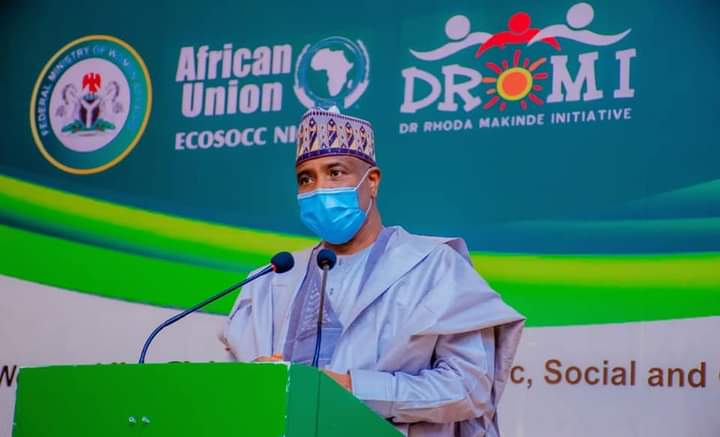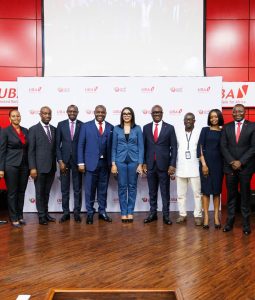
Inertia has for decades taken the backseat in diplomacy after former US Secretary of State, Henry Kissinger, initiated ‘diplomatic shuttle’ as a panacea to intractable conflicts across the globe. Perhaps taking cue from this and guided by the responsibility placed on his shoulder to guarantee the safety of the people he governs, Gov. Aminu Waziri Tambuwal of Sokoto State last week hit the road for about 35 hours, covering over 2,000 kilometers from Sokoto to Abuja, to Niamey in order to seek better lives for Africa’s women and tackle the menace of Boko Haram, banditry, abductions and sundry crimes.
On the quest for women liberation, at Abuja he spoke his mind. On the other hand, he was silent in Niamey. But the road he took back home spoke volumes. It was a stretch of dusty and bumpy road from Balbal in Dosso Prefecture through the snaky and sliding terrain of Kizamo, dotted by an awesome sand dune, where an articulated vehicle apparently used for smuggling broke down narrowing the already razor-thin thoroughfare with an avalanche of a gully by its side. It depicts, with a cliffhanger spectre, the worrisome security situation exacerbated by ‘ungoverned spaces’ that gives terrorists leeway and licence to perpetrate their dastardly acts.
Weeks after the African Union Economic Social Cultural Council (AU-ECOSOCC) made him its envoy for the New Decade 2020-2030 African Women Financial Inclusion in Nigeria, he took off on the diplomatic pitch March 30 when he pledged, in Abuja, to play advocate for the regional body at the Nigerian Governors Forum (NGF) after the body flagged off its drive to make the continent a better place for women.
Hours later he was in Niamey where he was part of the history of the long time Sahelian protagonist, hitherto orientated as Francophony, along with Nigeria’s Foreign Affairs Minister, Geoffrey Onyeama and his other counterparts from some Northern States, whose share of border with the Niger Republic, stretching from Bagudo-Banki, covers about 1406 kilometers or 20 hours drive.
He and his counterparts were the guests of the Nigerien government, who like Nigeria in 1999, witnessed its first democratic transition from civilian to another civilian after decades of tumultuous power shifts precariously punctuated by military takeovers. President Mahamadou Issoufou on Friday, April 2, 2021, handed over to Mohamed Bazoum, an indigene of N’guigmi, a Commune near the Lake Chad in Diffa Prefecture.
Bazoum after his investiture at a colorful indoor ceremony held inside Mahatma Gandhi International Conference Center in Niamey, addressed two issues of central concern not only Sokoto state, which about six local government areas share border with the Republic, but the other Northern States where Boko Haram fighters are ceaselessly wreaking havoc. These are issues of female child inclusion in education, as the Republic has the highest fertility rate globally (put at 6.89 children born per woman. Only 27% of females attend school out 34% out of school); and, that of terrorism.
According to him, “terrorist groups whose barbarity has exceeded every limit…carry out large-scale massacres of innocent civilians, and in doing so, commit real war crimes.”
Tackling the multifarious groups allied to Al-Qaeda or the Islamic State (IS) which straddle Mali, Burkina Faso and Nigeria, southeast of Niger Republic, Bazoum, who ruled out non-kinetic engagement with the Islamic antagonists, assured that his country’s diplomatic efforts will be centered on Mali.”
He was sceptical of the outcome of his diplomacy on this track because he feels taking on the militants “will be very difficult so long as the Malian state does not exercise full sovereignty over these regions.”
However, he was concerned that “the current situation in Mali has a direct impact on domestic security in our country.”
Although both Bazoum and Tambuwal share the same view on the inclusion of women in development, they are poles apart in what should be done to roll back and halt the gains of Jihadists. While the latter advocates for allurement (or the ‘carrot and stick’ approach), the former prefers belligerence through the instrumentality of Algeria and France.
Apart from being part of history as it unfolded in Niger Republic, Gov. Tambuwal’s Highway Diplomacy, it is hoped, will in the future yield a much more diplomatic dividend, that of girl-child inclusion in education, for which he is an envoy of the AU-ECOSOCC.
Bello is a Special Adviser on Media and Publicity to the Governor of Sokoto State.




探索Telegram的强大功能!访问纸飞机下载,了解其加密聊天、大型群组、频道和Bot生态系统。体验更强大的通讯工具。
I am sure this paragraph has touched all the internet
users, its really really nice piece of writing on building up new webpage.
I don’t even know how I ended up here, but I thought this post was good.
I do not know who you are but definitely you’re
going to a famous blogger if you are not already 😉 Cheers!
It’s going to be finish of mine day, except before ending I am
reading this enormous post to increase my knowledge.
I am sure this article has touched all the internet users, its
really really pleasant paragraph on building up new webpage.
Hi there, I log on to your blog like every week.
Your story-telling style is witty, keep up the good work!
Hello, I think your website could possibly be having web browser compatibility issues.
Whenever I take a look at your web site in Safari,
it looks fine but when opening in IE, it has some overlapping issues.
I merely wanted to provide you with a quick heads up! Aside from that,
great blog!
May I simply say what a comfort to discover someone that truly knows what they are talking about over the internet.
You definitely understand how to bring a problem to light and make it
important. More and more people ought to read this and understand this side of your
story. I was surprised that you’re not more popular
because you definitely have the gift.
WOW just what I was looking for. Came here by searching for Onlyfans